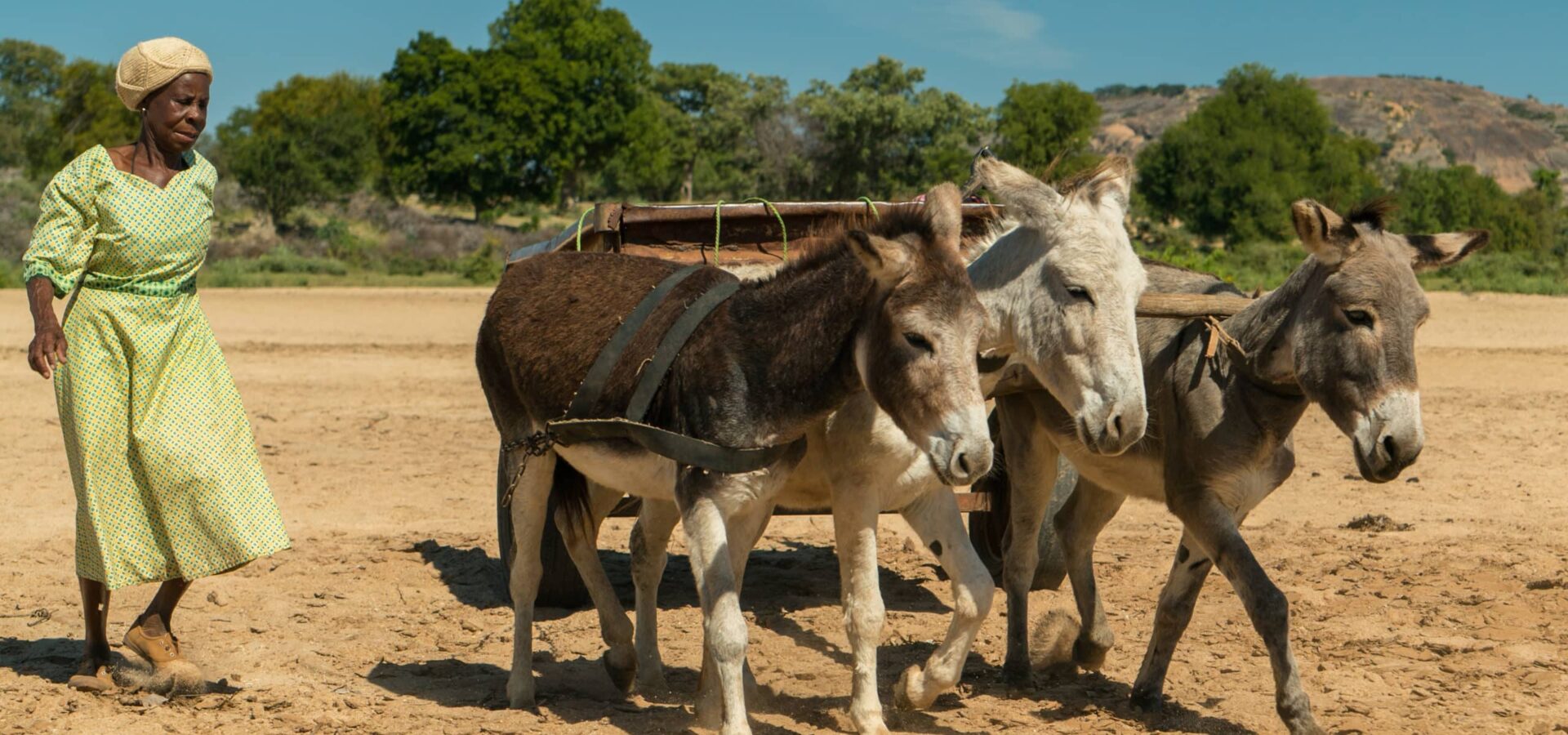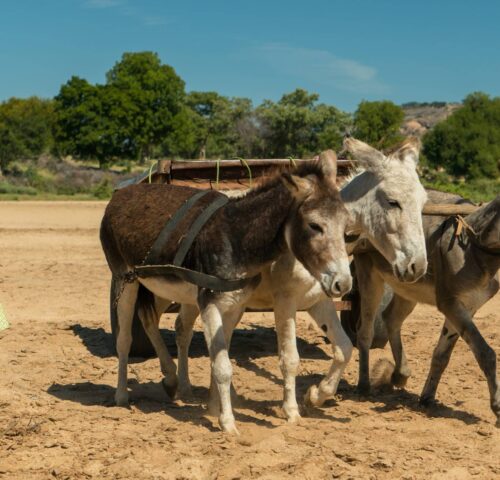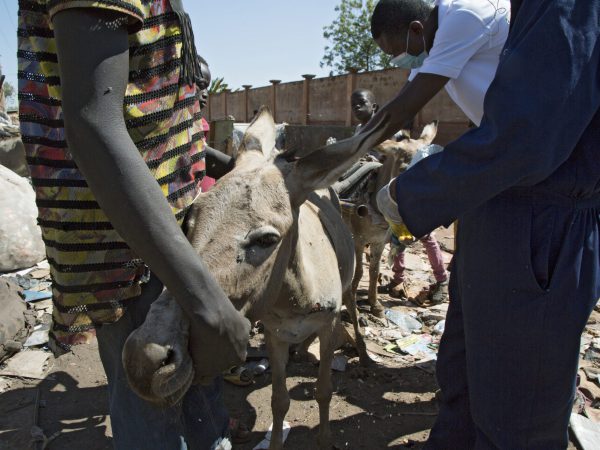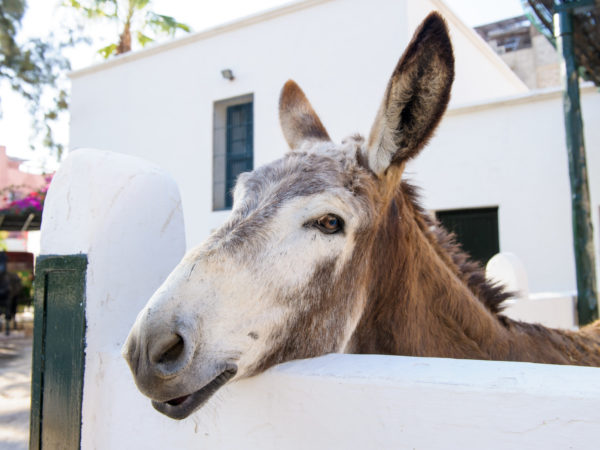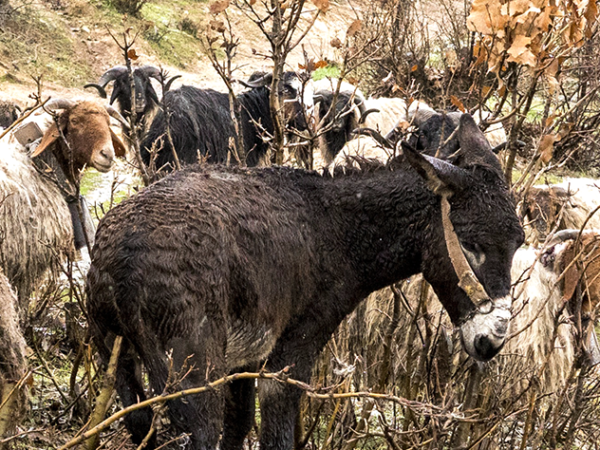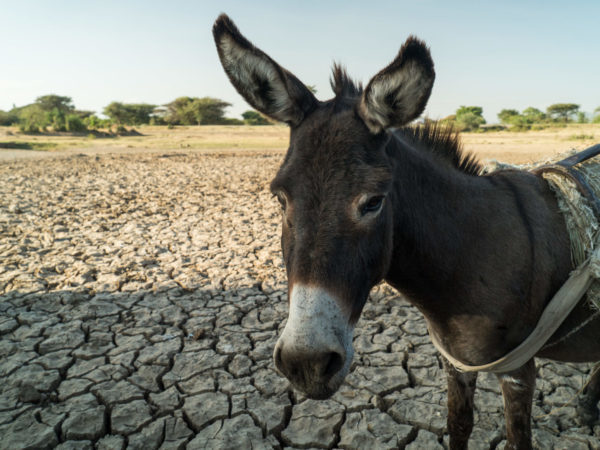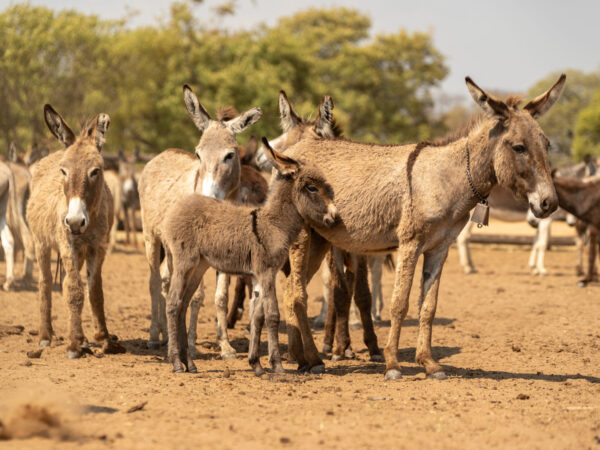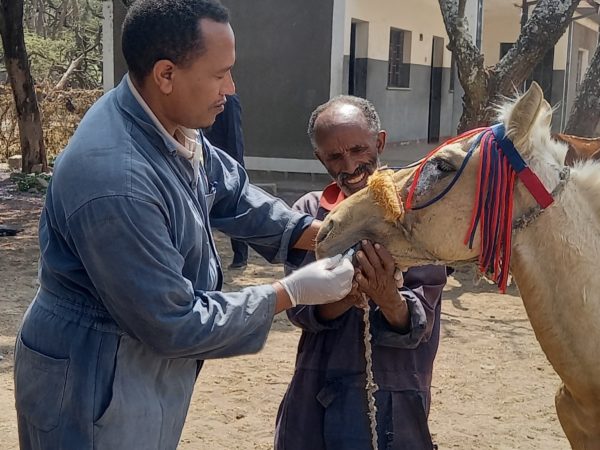In a country brought to its knees by political and economic problems, SPANA is a lifeline for animals in Zimbabwe and their owners. In addition to providing important veterinary care to working animals in urban and rural areas across the country, we educate children and teachers in Zimbabwe through a partnership with the local Ministry of Primary and Secondary Education.
Zimbabwe at a glance
- Population: 16 million
- Area: 390,757 square km
- Location: Southern Africa
- Capital city: Harare
- Estimated number of working animals: 566,822
- Number of SPANA centres and clinics: 12
- Number of working animals treated in 2022: 79,761
- Number of animal owners trained in 2022: 3,926
- Number of veterinary professionals trained in 2022: 64
- Number of children receiving humane education in 2022: 7,448
Our work in Zimbabwe
Our veterinary team in Zimbabwe provides vital treatment to working donkeys throughout the country, travelling thousands of miles every year in our six mobile clinics to reach small towns, villages and rural communities. Access to free veterinary care is essential in these areas, where around three-quarters of people live in poverty. Common problems treated by the team include harness wounds, hoof problems, eye conditions and parasites.
We also provide community and one-to-one training for working animal owners in how to better look after their animals. In addition, SPANA trains veterinary professionals across Zimbabwe. We operate a clinical skills centre, improving the technical and practical skills of hundreds of veterinary students at university each year.
Our animal welfare education programme is helping children throughout Zimbabwe to develop their knowledge of animals and their basic needs. Through an agreement with the Ministry of Primary and Secondary Education, we run and support PAWS (Promoting Animal Welfare in Schools) clubs in primary schools throughout Zimbabwe, and train teachers in Humane Education and Animal Welfare.
We are also working to stop the trade in donkey skins for use in traditional medicine. In 2018, we joined forces with a number of other local groups to successfully lobby the government to prevent a major new donkey abattoir from opening in Zimbabwe. We also help run workshops with local police forces and regulators to ensure that laws and regulations are effectively imposed.
Q&A with Dr Keith Dutlow, SPANA Zimbabwe Country Director
How long have you worked for SPANA?
We started working with SPANA as a partner project in 2009, and I was appointed Country Director when Zimbabwe became a permanent programme in 2013.
What is the main welfare issue faced by working animals in Zimbabwe?
The main issue is overwork. This is not because of negligence or cruelty, but simply because families need their animals for vital work on a daily basis. We are educating owners that their animal’s life will be better, and they will work better, if they are adequately rested, fed and watered and that good, appropriate equipment is used.
How important are working animals in Zimbabwe?
For most people in rural areas, working animals are the sole form of income. They rely on them completely for transporting water and fuel, and for farming practices like ploughing. People’s lives would be inestimably harder without them.
Why is SPANA’s work so important in Zimbabwe?
There is no other animal welfare organisation in Zimbabwe that is focusing primarily on donkeys and providing free veterinary treatment, training veterinary students and technicians, training owners in aspects of animal welfare and productivity, and teaching schoolchildren animal welfare.

